Jonathan Dodd’s latest column. Guest opinion articles do not necessarily reflect the views of the publication. Ed
I was born into the generation that never had it so good. Or at least, the first of them. I remember being told what life was like before I was born, and I went round to the houses of my grandparents and various others from an older era. I saw the difference. Or rather I lived it, riding the wave of increased spending power that changed us all for ever.
I’m not saying that being able to buy stuff is a bad thing. Far from it. I think that living with choice has been the one most important element in our liberation – if that is what it is. Nobody ever asked my parents what they wanted for the country. They knew what was good for them, they knew their place, and they answered the call, whatever it might be, for the sake of current royal person and country.
Your differences, silently hidden under your identikit clothing
You didn’t argue. Or rather you found out just how many consequences there might be if you did argue. And you lived with your differences, silently hidden under your identikit clothing. We make a lot of the nobility and dignity of all those masses before the Fifties, walking fully-clothed on the beach, actually going to church on Sundays, polishing front doorsteps, managing without much money, never wasting anything. On the other hand, they did have rather a lot of wars, and they burnt an enormous amount of fossil fuels, very inefficiently.
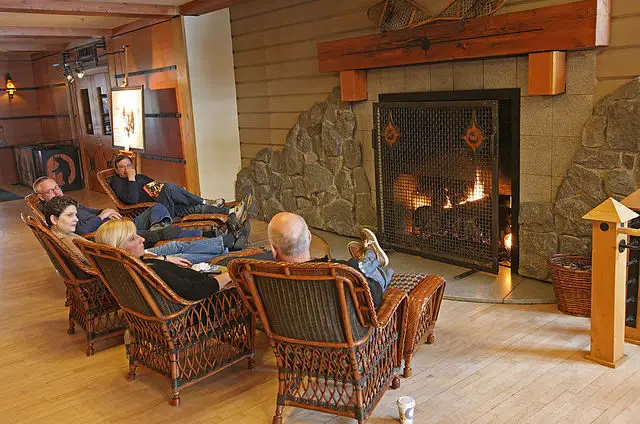
We also talk a lot about how feckless people can be nowadays, with all the freedom and none of the social breakwaters that used to stop the erosion of social cohesion and the loss of standards of behaviour, etc. For further information, please see the Letters to the Editor pages of any broadsheet newspaper.
It all seems worse than it was, but really it isn’t
And yet, people find it difficult to find any real evidence of the downside of our new affluence. We live longer, we’re healthier (apart from those who suffer from lifestyle illnesses), our sportsmen are about as successful as they ever were, and there are no more child murders than there were in my childhood, when I was allowed to disappear on my bike all day, as long as I took some lunch.
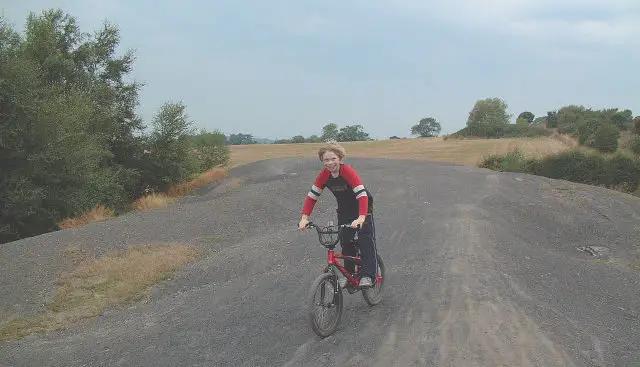
We aren’t any less literate than we used to be either, or so it seems to me. We are able to measure and compare everything now, so it all seems worse than it was, but really it isn’t. And the technology nowadays is extraordinary. OK, there were more cinemas, but the quality of films and entertainment in general is far better, as is our ability to access it. Should we wish to, we can cook anything, using any ingredient available to man.
Not owning any more than could be packed into a Transit Van
Our problem nowadays is two-fold. We’ve got far more to worry about, and we’ve got far too much stuff. I once lived on a houseboat on the Medway River. Next-door was a family of four who lived on a Victorian sailing boat. There was so little storage room that they each owned very little. There was a strict policy of anything new replacing something else, and everything had to be stowed away whenever it wasn’t being used, because there was hardly enough space just for the parents and their two boys to move about in.
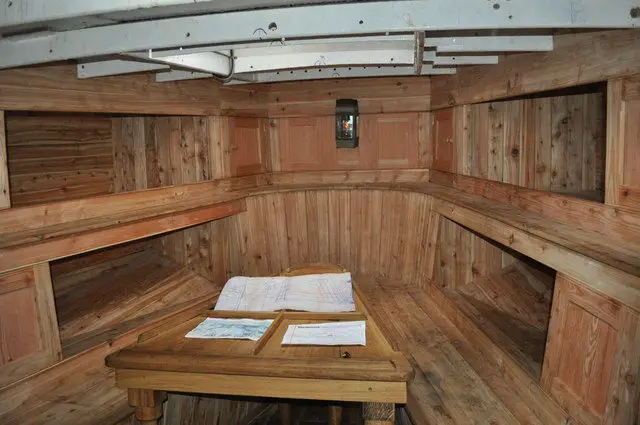
I’m not suggesting that this is an ideal lifestyle, just that they were able to slip their mooring at high tide and sail off without any preparation. They never lost anything, and everything they had was wanted, or needed. They had no slack, their lives were fit and lean. I like my stuff, and I have rather a lot of it. I did once have a policy of not owning any more than could be packed into a Transit Van, but I was on my own. That idea simply doesn’t work when there’s more than one human involved. And we love our stuff. It’s all precious.
Pathways between piles of stuff
I do remember two occasions though. The first was before we moved to this glorious island. We were living in a smaller house, and as we packed we realised that we had actually created pathways between piles of stuff. We were in danger of bursting at the seams. Then, before moving again, we rented one of those storage spaces. It quickly filled up, and I had a vision of this metal cubicle remaining, full of variations of the same stuff, maybe forever.
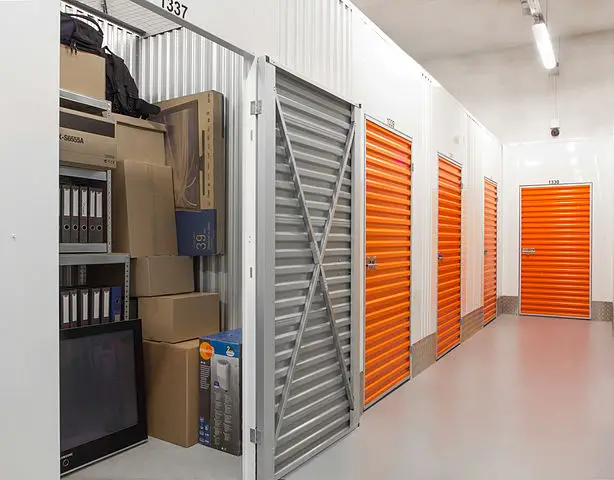
We’ve managed to empty it now, and we’ve absorbed most of it again. I asked the manager of the facility what happens if people stop paying or disappear. He told me that a clearance company pays for the privilege of breaking in and taking it all away. Of course, nobody knows what might be in there, so it’s a fairly sophisticated form of gambling. Apparently there’s quite a high proportion of units that are never visited. The owners pay every month, and it just sits there, mouldering gently.
All that stuff they just can’t throw away
Our television, that’s so ubiquitous nowadays, captures all this. We watch programmes about hoarders, whose houses are collapsing under the weight of all that stuff they just can’t throw away. There are programmes about companies who do bid for the contents of storage spaces, and there are even auctions of lost luggage at airline offices and airports.
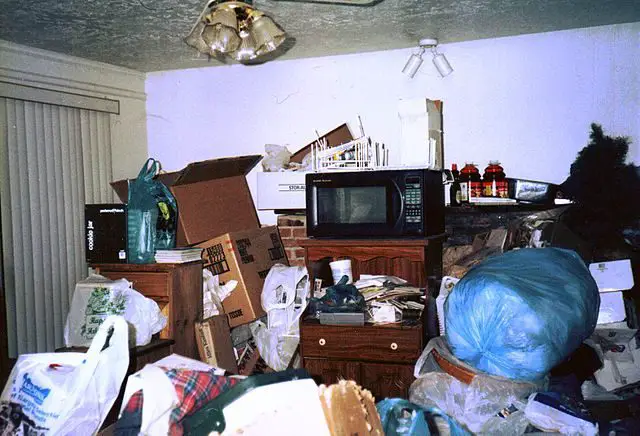
There’s apparently a big business involving clothes with labels donated to charity shops being bundled up and bought, shipped to West Africa and bought up sight-unseen, to be ‘refreshed’ and sold in street markets. The irony is that some of these were made in the same countries, but the workers couldn’t afford to buy them until they had been discarded by us.
Sometimes they’re never even taken out of the bag
I’m not entirely comfortable with all this very conspicuous consumption. Sometimes, when I walk through TK Maxx or Primark and watch people buying so much, I wonder whether it’s a way of life that really works or not. Apparently every woman in our country (I apologise if you’re not one) has clothes bought but never worn, or only once, filling up their wardrobes. Sometimes they’re never even taken out of the bag.

This might be a universal phenomenon though, because I remember my mother had the same problem. To be fair, she sourced most of her clothes from jumble sales and nearly-new shops. She altered the odds considerably, because she used to organise most of the jumble sales at our local church halls, which meant having to sort through everything, and if occasionally she put something to one side and contributed a fair price, it seemed a reasonably fair way of going about it.
Most people either sell everything on eBay or just throw it out
Nowadays we have boot fairs and the old jumble sales have more or less disappeared, because most people either sell everything on eBay or just throw it out. Or it goes in the roof. Or in the shed(s), or the garage. Charity shops optimistically explain that it’s illegal to leave piles of bags of stuff outside their doors at night, but as far as I can see, nobody takes any notice.
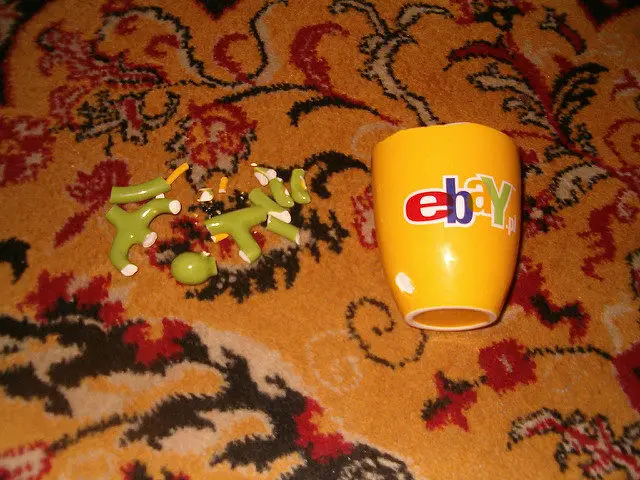
This problem doesn’t even stop at individual households. I heard about a new museum crisis. Apparently they don’t dare throw anything out if it’s been dug up from a site. Once it has been cleaned and classified and labelled, every piece has to be bagged and stored in specially-designed buildings with controlled temperature and humidity. Most museums are facing bankruptcy because of the continuing rise in storage costs. Let’s face it, how many pottery shards do we actually need to save?
Our standards of living will fall through the floor
My problem with all this is quite simple. On the one hand I can only imagine we’re speeding up the demise of our planet, or at least depleting our resources even further, and most of it makes no sense. On the other hand, most economists and politicians say that our economy must grow, or we’ll fall behind and our standards of living will fall through the floor.
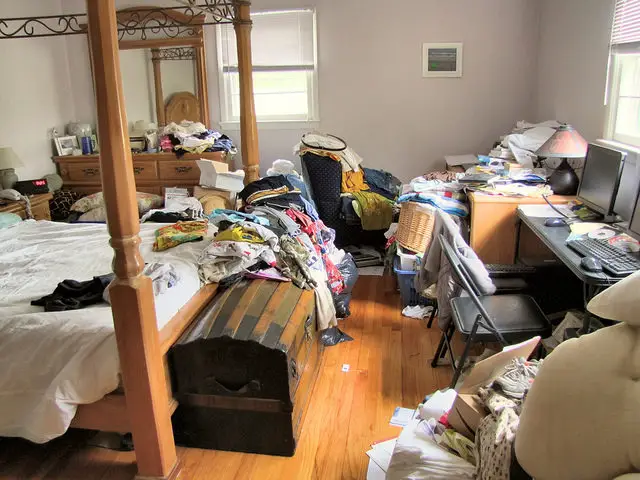
We wouldn’t want that, or would we? If it came to the worst, at least we wouldn’t run out of clothes for a while.
If you have been, thank you for reading this.
Image: Alvaro Ibanez under CC BY 2.0
Image: yellowstonenps under CC BY 2.0
Image: Gary Rogers under CC BY 2.0
Image: Ashley Dace under CC BY 2.0
Image: Self Storage under CC BY 2.0
Image: Shadwwulf under CC BY 2.0
Image: Andi_Graf under CC BY 2.0
Image: skuzik under CC BY 2.0
Image: polkadotcreations under CC BY 2.0





